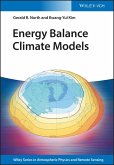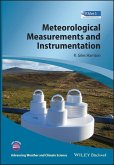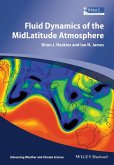Energy Balance Climate Models
Written by renowned experts in the field, this first book to focus exclusively on energy balance climate models provides a concise overview of the topic. It covers all major aspects, from the simplest zero-dimensional models, proceeding to horizontally and vertically resolved models.
The text begins with global average models, which are explored in terms of their elementary forms yielding the global average temperature, right up to the incorporation of feedback mechanisms and some analytical properties of interest. The eff ect of stochastic forcing is then used to introduce natural variability in the models before turning to the concept of stability theory. Other one dimensional or zonally averaged models are subsequently presented, along with various applications, including chapters on paleoclimatology, the inception of continental glaciations, detection of signals in the climate system, and optimal estimation of large scale quantities from point scale data. Throughout the book, the authors work on two mathematical levels: qualitative physical expositions of the subject material plus optional mathematical sections that include derivations and treatments of the equations along with some proofs of stability theorems.
A must-have introduction for policy makers, environmental agencies, and NGOs, as well as climatologists, molecular physicists, and meteorologists.
Written by renowned experts in the field, this first book to focus exclusively on energy balance climate models provides a concise overview of the topic. It covers all major aspects, from the simplest zero-dimensional models, proceeding to horizontally and vertically resolved models.
The text begins with global average models, which are explored in terms of their elementary forms yielding the global average temperature, right up to the incorporation of feedback mechanisms and some analytical properties of interest. The eff ect of stochastic forcing is then used to introduce natural variability in the models before turning to the concept of stability theory. Other one dimensional or zonally averaged models are subsequently presented, along with various applications, including chapters on paleoclimatology, the inception of continental glaciations, detection of signals in the climate system, and optimal estimation of large scale quantities from point scale data. Throughout the book, the authors work on two mathematical levels: qualitative physical expositions of the subject material plus optional mathematical sections that include derivations and treatments of the equations along with some proofs of stability theorems.
A must-have introduction for policy makers, environmental agencies, and NGOs, as well as climatologists, molecular physicists, and meteorologists.
Dieser Download kann aus rechtlichen Gründen nur mit Rechnungsadresse in D ausgeliefert werden.









